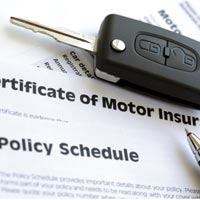Some state DMVs require proof of financial responsibility. Financial responsibility refers to a driver’s ability to pay for damages after an accident.
However, proof of financial responsibility and insurance are two different things. In most cases, proof of financial responsibility cannot replace car insurance. However, there are some states where you can use proof of financial responsibility to replace car insurance.
If you collide with another vehicle, for example, and cause damage to that vehicle and injure the people inside the vehicle, then you are required to pay for that damage. That’s why you need to provide proof of financial responsibility in order to legally drive on the road in most states.
In most states, drivers prove their financial responsibility in a simple way: you provide proof of insurance. Your insurance guarantees minimum liability coverage. It protects you in certain accidents. Car insurance covers the medical bills of anyone you injure in an accident, for example, as well as any property damage you inflict.
In other states, however, you can prove your financial responsibility without car insurance. You can make a cash deposit at your state’s DMV/RMV, keep a real estate bond with the state, keep a surety bond with the state, or keep a government bond with the state.
Instead of buying car insurance, for example, your state might allow you to keep $25,000 in a cash deposit with the state DMV. If you are involved in an accident, then this $25,000 fund is used to cover any liable damages – just like car insurance would cover the damage. It’s not technically car insurance, although it functions similarly to car insurance.




/How-much-minimum-car-insurance-requirements-by-State-to-drive-your-car-5740817f5f9b58723d635a60.jpg)




/hands-up-while-driving-a-convertible-164952484-588e3a1d3df78caebc194118.jpg)














